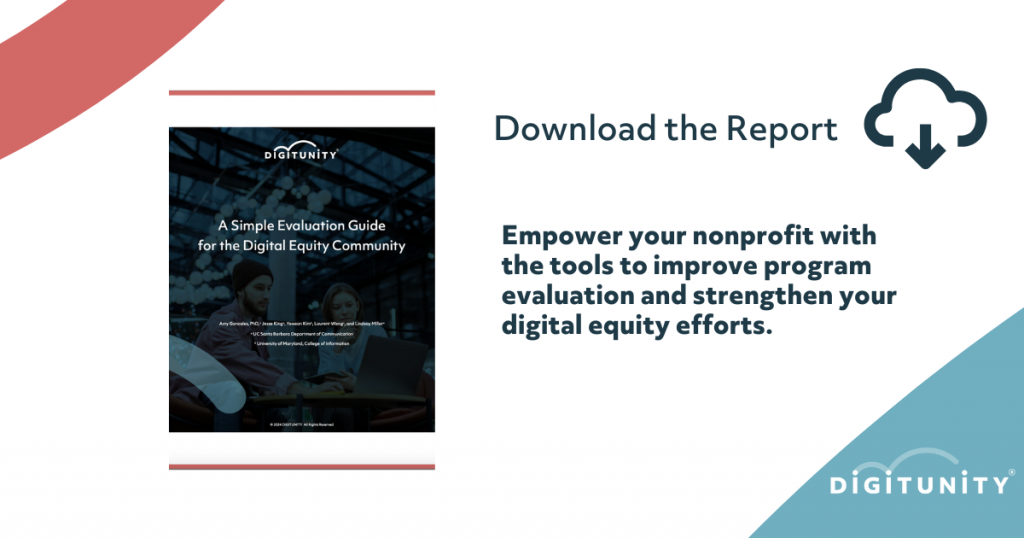Home » A Nonprofit Evaluation Guide for Digital Equity
A Nonprofit Evaluation Guide for Digital Equity
Digitunity has commissioned “A Simple Guide for Conducting Nonprofit Evaluation for the Digital Equity Community,” a valuable resource designed to help nonprofits strengthen their data collection and evaluation strategies. This guide offers practical, easy-to-implement tools to help organizations better engage stakeholders, protect client privacy, and secure essential funding.
As the need for evidence-based approaches to digital equity becomes more urgent, this guide comes at the perfect time. Co-authored by Amy Gonzales, PhD, Jesse King, Yeweon Kim, Laurent Wang, and Lindsay Miller, and reviewed with valuable feedback from Colin Rhinesmith, Deborah Mathews, and John Horrigan, the report draws on interviews with 22 nonprofits working in digital equity. It provides actionable insights to help your organization navigate evaluation challenges and tell a compelling, data-driven story of impact.
With best practices, research techniques, and customizable worksheets, this guide is tailored to support nonprofits of all sizes in designing evaluation strategies that demonstrate program success, build trust with funders, and ensure long-term sustainability.
What You’ll Learn:
- Actionable steps for effective data collection and analysis
- How to communicate the value of your programs through data
- Tools for building stronger relationships with funders and partners
Download the full report below and empower your nonprofit organization with the tools to improve program evaluation and strengthen your digital equity efforts.
More Resources

Through individual and corporate donations of technology, we work every day to help ensure that everyone can thrive in our digital society. Digitunity partners with 1500+ nonprofit organizations to distribute new and refurbished computers.

This original research commissioned by Digitunity shows that internet access and use increases rural economic and community development. The purpose of this brief is to raise awareness of the difficulties rural communities face when trying to address the device ownership issue.

We envision a world where anyone, in any community, can obtain a computer, free from barriers to ownership. Through integrated, sustainable systems, we are working to create long-lasting solutions that ensure access to the tools people need to thrive in a digital society.
